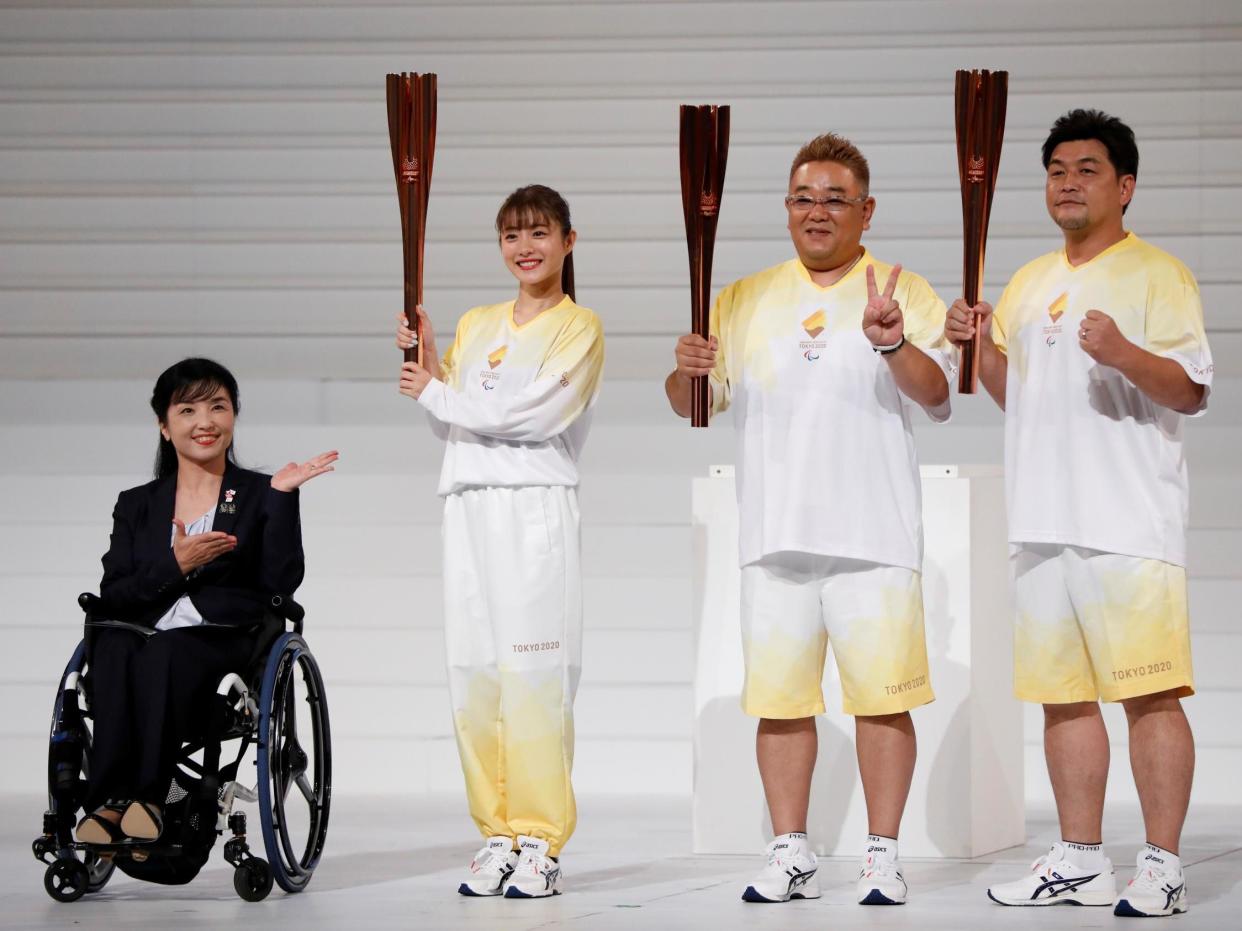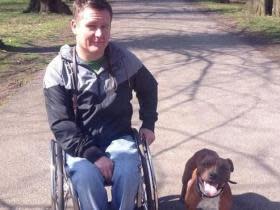As a Paralympian, I can’t wait for Tokyo 2020 – but disabled people deserve respect more than once every four years

There’s nothing like a countdown to get the heart racing. As a Paralympian, I spent two decades of my life racing the clock, plunging into pools in the small hours to shave seconds off my time, willing my muscles to work harder, faster so that my hand could touch the side first. I’ve seen time freeze through a splash of water before climbing on a podium to have a medal looped around my neck.
This Sunday marks the beginning of a new countdown, the turning over of a 365-day sand timer for the world. 25 August marks exactly one year until Tokyo 2020 and the quadrennial Paralympic Games. Across the globe, athletes are training hard and completing time trials, and Japanese construction teams are logging hours to get their venues completed on schedule. As the days trickle down the year-long hourglass, Paralympic excitement will fully start taking hold.
I’ve always loved the countdown to the Paralympic Games, although Tokyo will only be the second time I’ve not competed since the age of 18. I eagerly check off the days until this phenomenal celebration of human excellence and the rare chance to bring nations all over the world together. It’s also fantastic to see disabled people being valued on a world stage: recognised for our skills and abilities and appreciated as humans with hopes, ambitions and fears. In many ways, the Paralympics can’t come soon enough.
But this year’s countdown to Tokyo 2020 still also serves as a stark reminder. The attention beginning to circle the games and GB athletes is making my heart race with excitement but also sink for those outside of sport. My attitude to the Paralympics has not changed – not one iota – but I’m increasingly aware and frustrated that the wider acceptance of disability hasn’t kept pace with our admiration for our phenomenal Paralympians.
As a society, we’ve settled into a steady rhythm around disabled people. Every four years we celebrate inspirational Paralympians and marvel that they’ve somehow “managed”, against all odds, to “suffer” through their disability and make it mean something. Suddenly, disabled people are on TV and on posters and our voices are being listened to. The 13.9 million people with disabilities in the UK finally get to see a positive narrative around our identity – that is, until the Paralympic two weeks are up.
When the fireworks fall silent after the closing ceremony it’s business as usual for our treatment of disability. This translates to constant discrimination both at a direct and indirect level, affecting every area of life. From lack of access at music festivals right through to physical and verbal abuse, disabled people are routinely shamed and disadvantaged for difference and valued below those we consider non-disabled. It’s the invisible discrimination and prejudice which is most insidious, however. Society fences in the disabled community with barriers that stop us progressing and then shakes its head in consternation when we’re not being able to get out.
Read more
Team GB Paralympic medallist ‘refused’ access to Ryanair flight
This prejudice might seem intangible but it has very real effects. The view that disabled people are less valuable strengthens the barriers placed around us. Some of the biggest barriers the disabled community face are those in employment. While the UK may bag gold at international sports events, our track record of disability equality is far from shining: the British disability employment gap is a staggering 30 per cent. What’s even more appalling is that this massive gap hasn’t budged in the past decade.
If we truly want an equal society, we need to start tackling disability discrimination now, in all of its forms. Inclusivity needs to be the watchword of every industry if the UK is to hold its head high internationally. We need to understand that disabled people are equally as talented as non-disabled people in every field, Paralympian or otherwise. Having a disability doesn’t take away from a person and being disabled isn’t automatically a negative: it’s society’s treatment that’s the problem, not someone’s body. You shouldn’t need to have a medal to mean something.
http://players.brightcove.net/624246174001/default_default/index.html?videoId=6037072682001
Independent Minds Events: get involved in the news agenda
There are many ways to kickstart this culture shift and we can’t wait a year to begin. Businesses need to reform their company structures so they can hire and retain disabled talent in a meaningful rather than tokenistic way. The media must dramatically amp up its representation of disabled people and reverse the victim narrative that’s become entrenched.
We need to increase teaching in schools around disability, including making disability education a core part of PSHE. Governments should re-examine their policies and ask themselves if they’re really doing all they can to empower the disabled people in our country. All in all, it’s crucial that society normalises disability – because it is normal. Almost one in five people in the UK are disabled yet you wouldn’t know it. Outside the Paralympics they currently don’t exist or are undervalued.
One year until Tokyo 2020 should be a wakeup call for our nation. It needs to be a countdown to more than just the games, but to a future where all disabled people are treated like Paralympians in whatever their chosen field. So, what are we waiting for? The clock is ticking.
Liz Johnson is a Paralympic swimming champion and is co-founder of The Ability People
Read more
Read more Team GB Paralympic medallist ‘refused’ access to Ryanair flight

 Yahoo News
Yahoo News 

